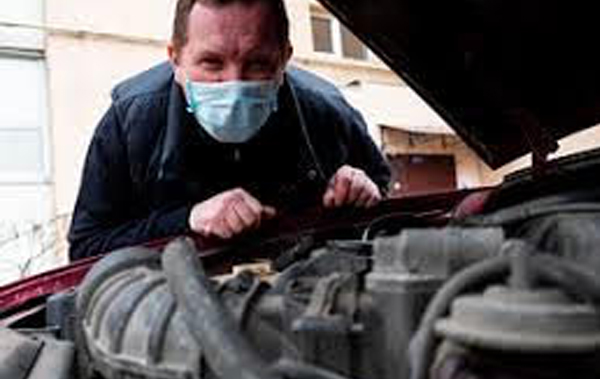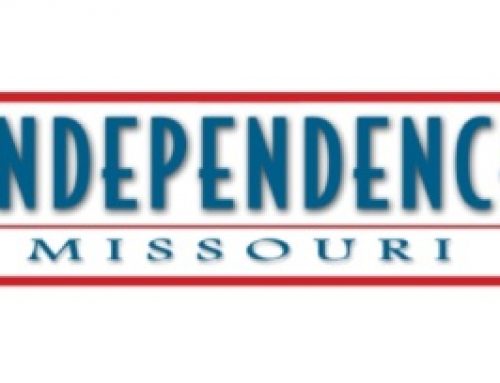Cynthia Ross and Montana Slack, Superintendent Equipment Manager, City of Glendale, Authors
We now find ourselves in a period of unprecedented uncertainty and volatility, the longterm consequences of which, are very hard to accurately assess, as we are not yet aware of its duration.
Today, there is so much in the media that it leaves many filled with anxiety and confusion. Many of your employees may not have accurate information from credible sources about how they can keep themselves, their coworkers or their customers safe.
There is no question the garage is an area where sanitation changes must be developed and implemented. If not a month ago when the virus began running rampant throughout the world, certainly today.
When fears and anxieties are addressed with notification that proper procedures are being put into place, the easier it will be for you to retain your business.
Let’s break down some solutions to safeguard your facility, technicians, customers and staff.
First, think of your facility. A dirty facility spreads germ and allows contaminants to grow on surfaces.
- Lock down maintenance facility with card access only to staff who work there.
- Our customer service area is still open to customers with CDC recommended social distancing.
- Hand sanitizing station and thermometer station set up in the customer service area.
- Customer service area is wiped down every two hours.
- All fleet vendors have been asked to provide their written safety plan and protocol for COVID19 before they are permitted on the Field Operations Complex. All vendors are required to follow all CDC guidelines.
- Require every person who enters your facility use hand sanitizer provided at every entrance.
- Eliminate handshakes and hugs.
Next, your staff is located inside your facility so additional safety measures are required.
▪ All vehicles are sanitized inside and outside at all touch points prior to entering the shop for service. This service is performed by other City staff that have been displaced due to their respective buildings closing, or services to the public curtailed.
▪ All vehicles are sanitized again prior to the vehicle being parked on the ready line.
▪ All mechanics sanitize their respective work bays with liquid sanitizer after each
job
▪ Disposable gloves should be worn and disposed of after every asset’s maintenance has been completed.
▪ Enlist vendors and suppliers to sanitize items prior to bringing them into the shop. Post sanitizing instructions in an outdoor area where sanitizing can be done using supplied sanitizer, gloves, and sanitary towels.
▪ Invite vendors to provide sanitary items to your shop.
▪ Keep your services writers and staff safe when writing an estimate for a drivein customer by ensuring all staff wear gloves and a mask.
▪ If your management software allows the customer to enter information onto an iPad, this will reduce verbal communication. Seal the iPad in plastic and sanitize it for the next customer.
▪ Place a TV monitor in the shop with assigned work to the appropriate technician. This can be monitored and changed quickly and eliminates physical contact with paper sources. This also provides updated information to the technician eliminating his need to physically go into the office area.
▪ Now may be a good time to assign vehicles to staff who are still working and on the job. This will eliminate the massive amount of germs that are unavoidable yet collected from a person going in and out of a shared vehicle.
▪ Rearrange your break/lunchroom to limit the maximum number of people to nine with 6-feet between all individuals. (Remove chairs and rearrange tables.)
▪ Stagger lunch and breaktimes on both shifts to accommodate social distancing and reduce seating capacity in the breakroom.
▪ Fleet administrative staff should be working remotely.
▪ Contract arrangements have been made with a local Chevrolet dealership to disinfect and steam clean vehicles at our location, should the need arise above our staffing capacity.
Advertise how your fleet has implemented safety measures.
▪ This will reassure your staff and customers that sanitation methods have been taken seriously. Customers will know they are protected when picking up their vehicles.
▪ Implementing procedures and sharing those with your local media will allow your fleet to become an example within the community.
Payment considerations can also be considered.
▪ This is an excellent time to negotiate contracts and pricing.
▪ If you have the ability to pay cash, negotiate for an extra 2% off on parts. Dealers are taking a hit too and could appreciate the cash flow. All they can do is say no.
▪ Contact your credit card companies and request credit line increases. You don’t have to use the increase, but now is a perfect time to get that should it be needed.
▪ Increase liquid reserves by setting aside more of your revenue for the future.
▪ Ask for a postponement of credit card payments without penalties.
One of your jobs as a leader is to implement procedures that ease anxiety and instead produce a feeling of safety.
It’s crucial to your organization to involve your leadership team and management in this planning. Schedule a virtual meeting with an agenda to develop and implement a sanitation and safety plan this week.
A special thank you to City of Glendale for adding their safety items to this article. They are in the midst of developing a three-phase plan to return to normal operations when given the go-ahead by City management.
Stay safe. Our thoughts are with you. We look forward to the day when we can meet again – in person.





